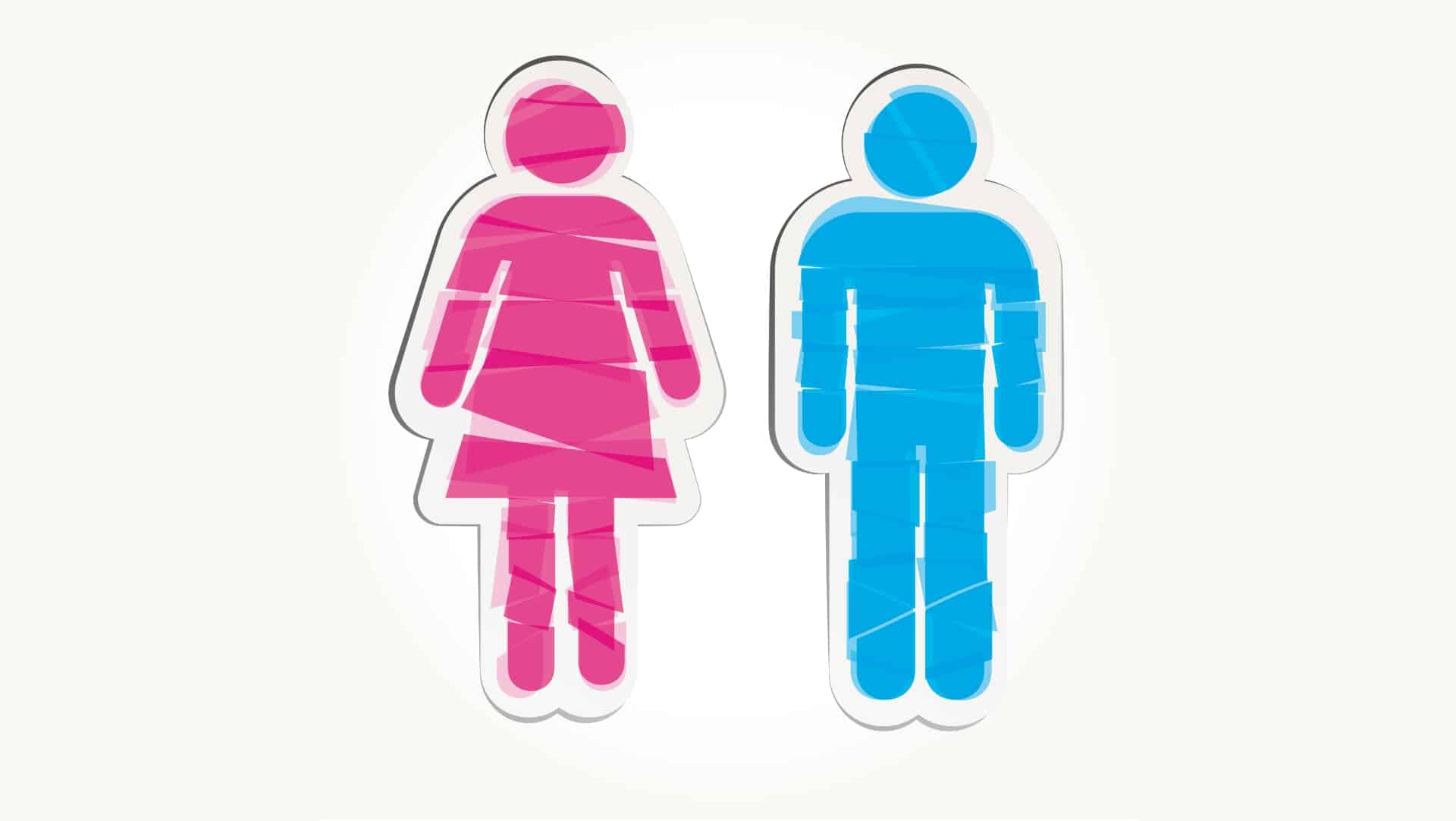Lies I've Believed: If It Feels Good, and Doesn’t Hurt Anybody, Do It

We’re starting a new series today. We’re going to look at some of the lies that we’ve believed. A couple of weeks ago, a few of us sat down and asked ourselves, “What are some of the lies that we have always believed?” We came up with about a dozen. We’re going to look at some of them over the next few weeks. You may have some that you’d like to suggest as well. If you do, let me know. We may like your idea better and bump one of yours.
What we really want to do in this series is to look at the lens through which we see the world. Some of you never knew that you wore glasses, and that’s just the point. We all have a worldview. A worldview is a set of assumptions that we hold – consciously or unconsciously – through which we interpret the world. We pick these up through culture, through our families, from all kinds of places. We don’t even know that we hold many of these assumptions, but we do. These assumptions color our interpretation of everything that we encounter. It’s important to take a step back and to look at whether these assumptions are actually true.
Here’s the kicker: some of the lies that we believe seem so obvious to others, especially from different cultures or generations. You can probably spot some widely accepted beliefs in previous generations which look blatantly false to you, but everyone believed them not so long ago. The same goes with younger generations, and those from very different cultures from our own. We’re really only blind to our own assumptions, which seems pretty clear to everyone else. Let’s see if we can identify what some of these assumptions might be, and then look at what the Bible says about them as well.
The first lie is this one: If you want to, it feels good, and it doesn’t hurt anyone – just do it. Dear Abby once wrote, “It’s wrong only if you hurt yourself, someone else, or if you feel it’s wrong for any reason.” This is probably one of the most widely accepted beliefs in our culture. We face moral decisions all the time. How do we decide what is moral and what is immoral? Some people use a code of ethics. Some use Biblical teaching. The majority of us ask a couple of questions: first, do I want to do it? A desire is a powerful thing. We tend to believe that an unmet desire is a travesty – another assumption! And then we ask ourselves, “If we do this, will it hurt anyone?” If the answer is no, then we go ahead and do it with a clear conscience.
On one hand, this sort of makes sense. You can see the reasoning behind it. How could you possibly object to an action that has no harmful effect on anyone else? How could you call such a thing immoral? It helps deal with all kinds of decisions that we have to make quickly everyday. It’s much more attractive than some of the arbitrary rules that many of us don’t like.
I could give you all kinds of examples. Yesterday, I had someone quote me for a job, and he gave me a cash price. A cash price means that it’s all under the table, and nobody pays any taxes. It’s cheaper for me, and easier for the worker. The only one who loses out is the government, and really, do they need the money? At a moment like that, we tend to think, “Who is this really going to hurt?” and, if we decide that nobody will get hurt, we go ahead and do it. That’s a pretty small decision, but the same thing happens all the time with small and large decisions that we make.
On the other hand, you have God, and all kinds of commands that seem unreasonable. When we face a moral decision, we sometimes think that we’d like to do what God says, but what’s the harm in ignoring some of the stricter commands? Where’s the victim? Why should we obey God when he tells us not to do something we want to do, even when it doesn’t hurt anyone?
I suppose we could just say that God trumps all of us, and that if he says it we should do it. On one hand, that’s not a completely bad answer. It’s presumptuous of us to think that we know better than God, and in a sense, if God says it we should just do it no matter what we think.
On the other hand, God doesn’t approach us that way. God could have said, “Obey me and be quiet,” but he didn’t. God explained his desire for us, and he’s given us the logic behind his commands. A child is much more obedient when she is sure of her parent’s intentions for her, and we’re likely to fall in line with God’s commands when we understand his intentions for our lives.
You could go in all kinds of directions in trying to figure out why we should obey God even when disobeying him wouldn’t hurt anyone. I came up with three main reasons this week, which essentially come down to one main reason. Let’s look at these three reasons and see if we can make sense of why we should obey God even when disobeying doesn’t seem to hurt anyone.
God wants us to be like Him
The first reason is that God desires something for us. You could say that God has an agenda for our lives: he wants us to be like him. God doesn’t give arbitrary rules without purpose. He has a deeper reason. He wants to transform us so that we’re increasingly like him.
1 Thessalonians 4:3 says, “God wants you to be holy.” Romans 8:29 says, “God knew his people in advance, and he chose them to become like his Son.” God’s main desire isn’t to allow us to do whatever we want that doesn’t hurt anyone. God has a higher agenda: he wants whatever takes place in our lives to make us more like his Son. One writer calls this a renovation of the heart. That’s what God wants for all of us.
When Jesus came to earth, the religious leaders of that day majored in moral commands. They were experts in knowing and even adding to the commands that God gave in the entire Scriptures. You might think that Jesus came to say that none of that matters, that God doesn’t care about the rules. Jesus said the opposite. Matthew 5:17-20 says:
Don’t misunderstand why I have come. I did not come to abolish the law of Moses or the writings of the prophets. No, I came to fulfill them. I assure you, until heaven and earth disappear, even the smallest detail of God’s law will remain until its purpose is achieved. So if you break the smallest commandment and teach others to do the same, you will be the least in the Kingdom of Heaven. But anyone who obeys God’s laws and teaches them will be great in the Kingdom of Heaven.
But I warn you-unless you obey God better than the teachers of religious law and the Pharisees do, you can’t enter the Kingdom of Heaven at all!
After saying this, Jesus gave some examples of God’s commands. Instead of lowering the bar, Jesus went even further and showed what the true meaning of the command was in God’s mind. He emphasized the deep, underlying principles behind God’s commands, and a total commitment to it.
This is all getting a little scary. We generally hate rules, and the most unattractive people are those who major in following rules, as well as making sure everyone else follows the rules. Jesus wasn’t in favor of the Pharisees, and there is strict teaching about legalists – those who create rules of their own, and think that rule-keeping is the way to get to heaven. That’s not what I’m talking about at all.
It’s a mistake, though, to think that God doesn’t want our obedience. Jesus didn’t come to say that obedience no longer matters. The reason why it still matters is not so that we could earn a good standing with God. It’s because he wants us to be like him. There are actions that we could take that go against this agenda, and God warns us against them. God’s desire is that we become like him.
We don’t know as much as God does
We could stop there, and as I said earlier, it should be enough that God says something. If God says something, who am I to argue? He isn’t arbitrary, and he does have an agenda for our lives – that we become more like his Son. There’s a second reason why: we don’t know as much as God does. We don’t have the information needed to decide what’s right and what’s wrong. Making moral decisions on our own would be too heavy a burden for people to bear. God isn’t limited in his knowledge, and he’s able to see what’s best for us.
One of the problems with making our own moral decisions is that we’re not always the best judges of our situations. We have all kinds of biases. Sometimes what I ought to do is the exact opposite of what I feel like doing. Jeremiah 17:9 says, “The human heart is most deceitful and desperately wicked. Who really knows how bad it is?” That sounds a little harsh, but it’s true: we are very capable of deceiving ourselves, of telling ourselves that something that is wrong should be right. We’re not in the best position to decide for ourselves what is moral and what isn’t.
The Bible also teaches that Satan opposes us, and wants to destroy us. If you take our lack of information, our lack of objectivity, and the presence of opposition, you’d have to conclude that we don’t have a basis for deciding what’s right and wrong on our own. It would be asking far too much for us to have to make these decisions ourselves.
We don’t always see the consequences of our actions. It may look like we’re not going to hurt anyone, but these same actions can have devastating consequences later on. We have these old windows in our house. At one time, they used to stay up on their own. Now, we have to prop them up with sticks. One day, I caught my son sitting under one of these windows that was propped up by a stick. I explained to him why it was a bad idea, how he could get hurt, and all of that. A few days later, I found him there again. This time, I gave him a demonstration of how hard that window would come down, not just once but twice. I knew the damage that the window could do; he couldn’t foresee what could be wrong. When we have all the information, things can make a lot more sense.
Some of us could stand up and talk about decisions that we’ve made that we didn’t think would hurt anyone, but have ended up doing a lot of damage. God’s commands are given because he knows and understands things that we don’t, and he’s protecting us from the consequences of our own disobedience.
One more reason:
God wants us to be free
We tend to think that commands are restrictive, and that we lose our freedom if we have to obey commands. The Bible presents a different perspective: God gives commands to ensure our freedom. God’s commands are expressions of love, given not to restrict us but to set us free. Love is the essence of God’s law.
So whenever you speak, or whatever you do, remember that you will be judged by the law of love, the law that set you free. (James 2:12)
I will walk in freedom, for I have devoted myself to your commandments. (Psalm 119:45)
God means keeping his commandments, and really, that isn’t difficult. (1 John 5:3)
Contrary to what you’d think, obedience to God leads to freedom, and disobedience leads to bondage. Make sense? You wouldn’t predict that it would be this way, but it is true. Disobedience looks like the route to freedom, but it leads us to harm ourselves and others, and also to dishonor God. It looks like the route to freedom, but it’s the opposite. It leads us away from freedom.
I’ve talked about three reasons why obedience is necessary, even when disobedience looks like it won’t hurt anyone. I’ve talked about God’s desires for us, his knowledge, and his love. Boil this down and you’ve got one main reason to obey God: because of his character. Because of who God is, we can trust that he’s not arbitrary or strict for the sake of being strict. He’s motivated by his desire to make us like his Son, to protect us from the harm that we don’t see, and out of his incredible love for us. That’s why we’re called to obey him.
Boil down the reasons to obey, and you come up with love. Obedience is the response of love to who God is and what he has done for us. Jesus said, “If you love me, obey my commandments” (John 14:15). I could tell you to obey God, but that wouldn’t do a lot of good. We can’t motivate ourselves to be good by ourselves. But we can be in relationship with God, and to stay so connected to him that our motivation is not duty but love. He promises to help us, because nobody can do this by themselves.
So let’s pray. Let’s confess any area in which we’ve chosen to ignore God’s commands, because we can’t see how disobeying would hurt anyone. Let’s thank him for his character, that he has given his commands as an expression of his love and protection. Let’s ask him to draw us close to him, that we would obey him, not because we have to, but because we love him.





